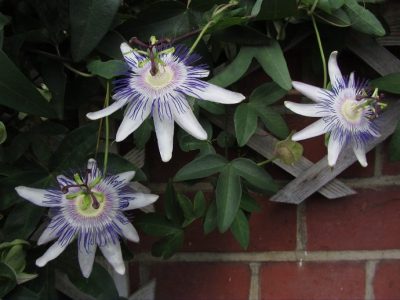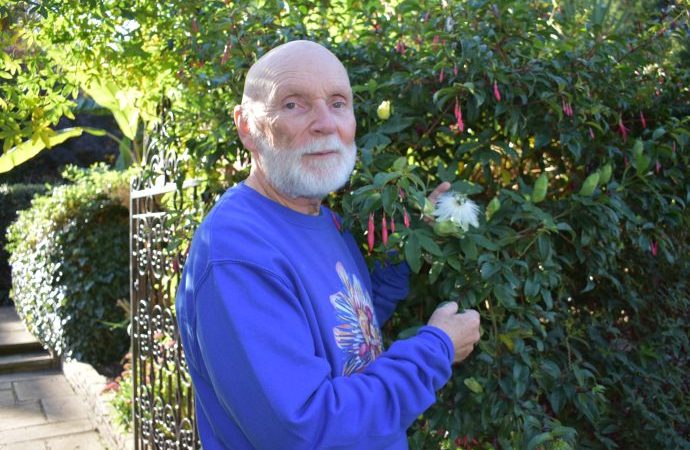Myles Irvine is a bit of an alchemist. From his home in Lovelace Road, Surbiton, the passion flower expert and commercial breeder creates new hybrids with the aim of producing stunning, free-flowering plants. “Every now and again you get something spectacular – you are just hoping for that,” said Myles who has been growing passion
Myles Irvine is a bit of an alchemist. From his home in Lovelace Road, Surbiton, the passion flower expert and commercial breeder creates new hybrids with the aim of producing stunning, free-flowering plants.
“Every now and again you get something spectacular – you are just hoping for that,” said Myles who has been growing passion flowers since the late 1980s and breeding them since the early 1990s.
It was a hobby for the former owner of the Riverside Gym in Hampton Court. It later became a business which uses a distribution and marketing company in Santa Barbara in California and nurseries which test and grow the plugs in the UK, Holland, Canada and America.
Some of Myles’ latest cultivars are currently undergoing trials at two of the biggest wholesale nurseries in the UK.
The man behind Riverside Passiflora and Passiflora Online specialises in passion flowers which are bee-friendly, relatively hardy and suited to the UK climate. He has won numerous awards for his plants which have featured at RHS flower shows like Chelsea and Hampton Court and can be found at Wisley gardens.
 He has created and named 10 Passiflora over the years including the popular ‘Betty Myles Young’ (after his mum), ‘Damsel’s Delight’, ‘Snow Queen’ and of course our favourite, ‘Star of Surbiton’ (pictured left).
He has created and named 10 Passiflora over the years including the popular ‘Betty Myles Young’ (after his mum), ‘Damsel’s Delight’, ‘Snow Queen’ and of course our favourite, ‘Star of Surbiton’ (pictured left).
““What you are looking for as a breeder is something distinctive – and the Star of Surbiton is that. Star of Bristol x Purple Haze are the parents.
“It is a unique flower, beautiful – a very white, pale sort of colour. There’s nothing else that looks quite like it,” said Myles who is also keen on growing other exotic plants in his communal garden – agaves, bananas, cacti, yuccas, palms, cycads and more.
Myles said even if he managed to cross a plant which he thought had the potential to become commercially viable it could take four years before something would actually appear in nurseries.
“Passion flowers are very difficult to breed. It is a bit of a war of attrition. Whether breeding is an art or a science or somewhere in between you just need luck. It is fascinating, but it is very tough,” he added.
Visit riversidepassiflora.com and passionflow.co.uk to find out more about passion flowers, which to choose and how to grow them.









Leave a Comment
Your email address will not be published. Required fields are marked with *